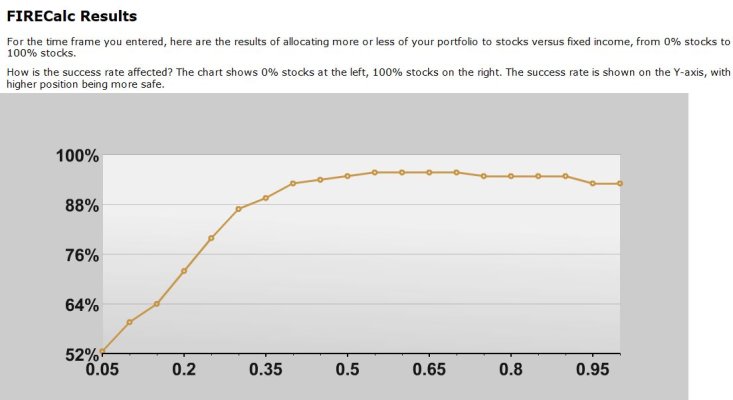- Joined
- Nov 27, 2014
- Messages
- 9,203
I retired a few years ago and this is the worst so far. My general nature to to do something. However, I’m holding firm so far. As others have said, I’m trying to focus on the cash and bonds. I have plenty for probably 10 years without including any of their income. By then, both DW and I will be collecting SS, extending the time even further when I may have to sell some stocks. I really should just stop looking at my account.
OP, unless you used the last decade of market run up to hit your number AND your number had no cushion, you’ll be fine. Stick around, this group is very helpful in calming my nerves and I expect you’ll find the same. Also, keep in mind, we’re still above 2018 closing numbers. You didn’t think you’d get to keep all of 2019’s returns, did you?
OP, unless you used the last decade of market run up to hit your number AND your number had no cushion, you’ll be fine. Stick around, this group is very helpful in calming my nerves and I expect you’ll find the same. Also, keep in mind, we’re still above 2018 closing numbers. You didn’t think you’d get to keep all of 2019’s returns, did you?

